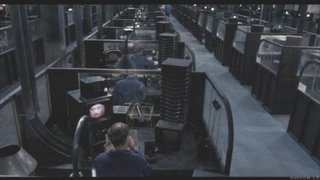 George Orwell, 1984:
George Orwell, 1984:There was of course no way of knowing whether you were being watched at any given moment. How often, or on what system, the Thought Police plugged in on any individual wire was guesswork. It was even conceivable that they watched everybody all the time. But at any rate they could plug in your wire whenever they wanted to. You had to live -- did live, from habit that became instinct -- in the assumption that every sound you made was overheard, and, except in darkness, every movement scrutinized.
New York Times, June 2, 2006:
The Justice Department is asking Internet companies to keep records on the Web-surfing activities of their customers to aid law enforcement, and may propose legislation to force them to do so.
* * *
An executive of one Internet provider that was represented at the first meeting said Mr. Gonzales began the discussion by showing slides of child pornography from the Internet. But later, one participant asked Mr. Mueller why he was interested in the Internet records. The executive said Mr. Mueller's reply was, "We want this for terrorism."
* * *
An executive of one Internet provider that was represented at the first meeting said Mr. Gonzales began the discussion by showing slides of child pornography from the Internet. But later, one participant asked Mr. Mueller why he was interested in the Internet records. The executive said Mr. Mueller's reply was, "We want this for terrorism."







No comments:
Post a Comment